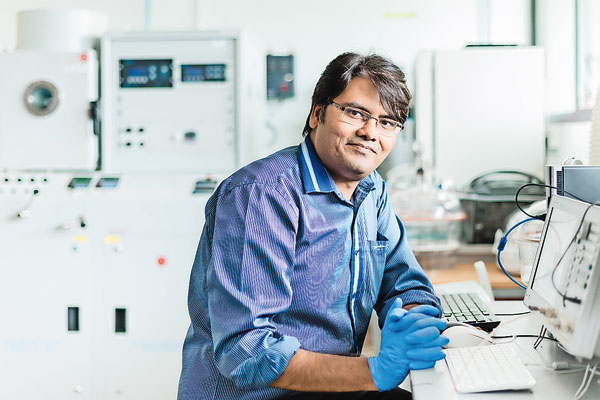Remote lab ensures seamless resumption of lab exercises
View(s):Nations all over were forced to impose varying degrees of lockdown to stem the tide of the pandemic. However, education advocates were unanimous in their calls to ensure that lessons continued for students.
Even though online learning was already in existence, for academics whose subjects include computer systems – that involve the hands-on practice of calibrating microprocessor systems – classroom presence is imperative in evaluating students’ performance.

Seamless online resumption - Narayanan
For electrical and electronic engineering and computer engineering students, fathoming the complex processes involved in making a microprocessor function is compulsory. Hence every student is required to undergo a lab examination as part of the Computer Systems module.
There are seven lab exercises before students sit for their exams. At Monash University Malaysia, traditionally, 25 students participate in this exercise at the computer systems lab. Each student is given an FPGA Board and other electronic items such as power supply units, oscilloscopes, cables, wires, and a whole host of other essentials for their subjects.
Lab exercises and lectures have a symbiotic relationship, whereby one cannot function without knowledge of the other. This is why it was critical to deliver the lessons online and find a way to link lectures and lab exercises together with minimal disruption.
Having anticipated the movement control order (MCO) imposition in 2020, Associate Professor N. Ramakrishnan of the Electrical and Computer Systems Engineering, Monash University Malaysia, brought home two FPGA boards to figure out if he could facilitate practical lab exercises online. The boards were connected to the computers in the labs, which were connected to the internet.
“Sadly, I wasn’t making much progress as nothing seemed to work. I then started Googling for solutions, specifically for remote labs,” said the School of Engineering lecturer.
A lot of people often misunderstand the difference between a virtual and remote lab. A virtual lab uses a simulated environment for experiments. On the other hand, a remote lab deals with a real machine connected to a server for people to access anywhere, anytime, provided they have an internet connection.
“I stumbled upon LabLands who were offering access to their repository of field-programable gate arrays (FGPA) for free for a month. It was part of their effort to help students during the Covid-19 pandemic. The subsequent weeks’ involved hours-long conversations with Dr Pablo Orduña, co-founder and CEO of LabsLand, and Dr Rania Hussein, Assistant Teaching Professor, Department of Electrical & Computer Engineering, University of Washington. Dr Orduña helped me figure out the script codes that would resemble the lab that I had in mind. After three weeks, I managed to redefine all my lab exercises to fit into LabsLand,” Dr Ramakrishnan shared.
To ensure that students do not copy, Dr Ramakrishnan posed different sets of questions that involved different sets of combinations on the circuit board. He uploaded videos of lectures, which provided instructions on how students can remotely access the microprocessors for their lab exercise.
The luxury of accessing the labs anytime and anywhere proved to be an instant hit with students. The log sheets showed that his students were accessing the lab on a 24-hour basis.
The people at LabsLand were mightily impressed as students were logging into the system in the wee hours of the morning, like 3 am or 4 am. Because they were not confined to using a lab that is only accessible during office hours, they were presented with a unique opportunity to practice more.
“I always give very challenging questions to my students for their exams. They still did very well and credited their success to increased practice hours, enabled by access to the lab anytime, anywhere, as long as they had an internet connection.”
The remarkable success of the collaboration between Monash University Malaysia and LabsLand will accelerate the path to remote learning. When the dust settles, students will return to class. However, they will now have the luxury of time and convenience on their side as more practice time is guaranteed with this remote lab.
“Suppose they encounter doubts about a machine that they are studying about. In that case, they can just access the lab and start working with the machines to find a resolution to their questions.”
The team’s efforts in devising a solution for ensuring the seamless resumption of lab exercises did not go unrecognised. They were awarded the 2021 GOLC – Online Lab Award for A Distributed Remote FPGA Laboratory: A Collaborative Online Lab Between 5 Universities in 4 Countries.
A Monash degree can offer you personal enrichment and enhanced career opportunities. Join our Virtual Open Day and Postgraduate Preview on 22 May 2021, from 12pm to 5pm (Malaysian time) to explore our degree programs. More details at www.monash.edu.my/open-day



